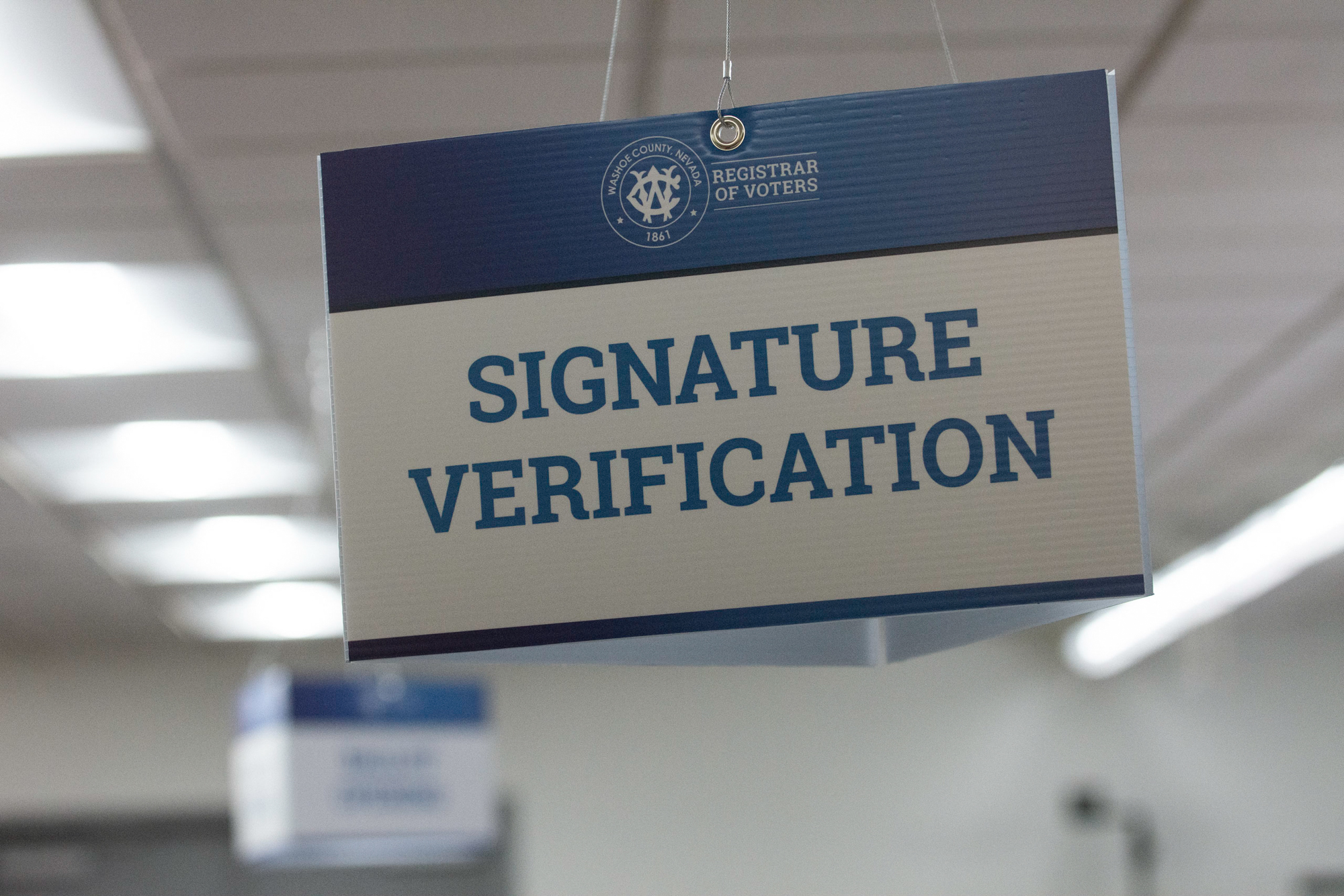Nevada broke its record for signature cures completed of mail ballots, as well as for votes that were not counted because of ineligible signatures in this month’s election.
The signatures on more than 23,000 mail ballots were successfully cured in this month’s election — meaning election officials confirmed an eligible voter was linked to a ballot with a signature not matching the one in the state’s voter file, and the issue was resolved. Meanwhile more than 9,000 mail ballots had inadequate signatures and will not be counted.
The total number of amended signatures exceeded the combined cures completed in 2020 and 2022, the only other general elections with widespread mail voting. In all, about 1.5 million votes were cast in the general election. The votes that were not counted mostly came from registered nonpartisans, while about 40 percent of the successfully-cured ballots were from Democrats and about a quarter coming from Republicans.
The record-breaking data reflects the increased role of signature-curing in Nevada elections, as mail voting continues to be a popular voting method and younger voters with less experience signing their name enter the electorate. In the past few weeks, political parties and groups have launched robust signature curing programs to follow up with voters whose ballots were in limbo because of a signature mismatch concern, though it is unclear if any races were decided because of those efforts.
In a statement, Nevada Secretary of State Cisco Aguilar said “signature verification and curing are important elements of keeping our elections secure, but we can’t lose sight of every eligible voter’s fundamental right to have their ballot counted.” Aguilar, a Democrat, also said he plans to work with the Legislature next year to determine if the signature curing process can be improved.
“It’s very disappointing that more than 9,000 Nevadans did not have their votes count this election due to the failure to have their ballots cured,” the statement said.
Nevada law does not require an ID to vote, but it does mandate that voters sign their name on their mail ballot to verify their identity. The signature on a voter’s mail ballot must match the one on file with the state, which is typically the one associated with a voter’s driver’s license. Voters were also given the chance to update the state’s record of their signature.
Although leading candidates in all of Nevada’s federal and legislative elections did not change in the final days of ballot counting, last-minute signature curing has had an effect down-ballot. For example, in the race to represent Ward 2 on the North Las Vegas City Council, the winning candidate prevailed by nine votes after trailing by 30 votes before the final tally was released.
Nevada law allowed voters to cure their mail ballot signature by 5 p.m. Tuesday, while all other mail ballots must have been received by 5 p.m. Saturday to be counted, meaning the final vote changes earlier this week were likely a result of people curing their signature and releasing their ballots to be counted.
Three legislative races have seen particularly strong ballot curing operations. In Las Vegas Assembly Districts 12 and 41, Democrats helped cure ballots to help incumbents Max Carter and Sandra Jauregui, respectively, who both narrowly hung onto their leads, though it is unknown how the results may have changed without the curing efforts.
In Senate District 11, Republican Lori Rogich maintained her roughly 1,000-vote lead to unseat Sen. Dallas Harris (D-Las Vegas), with both parties conducting signature cure efforts since Election Day.
The Culinary Workers Union Local 226, the group representing Las Vegas hospitality workers, has conducted a signature-curing effort since late October, primarily focusing on helping Sen. Jacky Rosen (D-NV), who won her race by about 23,000 votes, and Rep. Susie Lee (D-NV), who prevailed by about 10,000 votes.
The union, helped by 200 canvassers, knocked on more than 24,000 doors in Las Vegas and Reno and called and texted voters daily to get people to cure their signatures, spokesperson Bethany Khan said.

